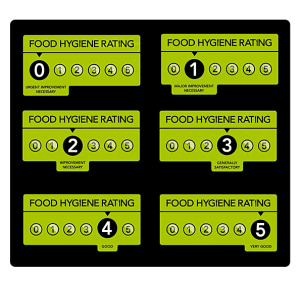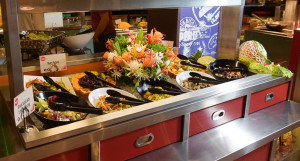Police and federal agents said they’ve arrested a man suspected of spraying food with a mouse poison mixture at Ann Arbor-area grocery stores.
 The FBI said a tip from the public led to the suspect, whom they haven’t identified.
The FBI said a tip from the public led to the suspect, whom they haven’t identified.
David Gelios, special agent in charge of the FBI’s Detroit Division, said the man admitted to contaminating food with a potentially hazardous liquid at the Whole Foods Market on West Eisenhower Parkway, a Meijer store on Ann Arbor-Saline Road and Plum Market on North Maple Road.
“The suspect has admitted to using a potentially hazardous material to contaminate food in several Ann Arbor-area grocery stores,” Gelios said. “Our joint investigation leads us to believe that this individual sprayed a liquid mixture of hand sanitizer, water and Tomcat mice poison on produce.”
He also said the suspect told investigators he sprayed the chemicals on produce in those stores within the last two weeks.
Based on FBI investigation, there is the potential that other stores in Michigan may also have been targeted. These stores include:
Busch’s
2240 S Main Street
Ann Arbor, MI
Cupcake Station
116 E Liberty
Ann Arbor, MI
Family Fare
2026 North Saginaw
Midland, MI
Kroger
3838 Richfield Road
Flint, MI
Meijer, #108
7300 Eastman Ave
Midland, MI
Meijer, #64
3145 Ann Arbor-Saline
Ann Arbor, MI
Meijer, #213
9515 Birch Run Rd
Birch Run, MI
Millers Mini Mart
3001 Bay City Rd
Midland, MI
Plum Market
375 North Maple
Ann Arbor, MI
Target
2000 Waters Road
Ann Arbor, MI
Tsai Grocery
3115 Oak Valley Drive
Ann Arbor, MI
Walmart
910 Joe Mann Blvd
Midland, MI
Walmart
7000 E Michigan Ave
Saline, MI
Whole Foods
990 W Eisenhower Pkwy
Ann Arbor, MI
Whole Foods
3135 Washtenaw Ave
Ann Arbor, MI
 “While the risk for adverse health effects appears to be low, more investigation is being done to determine what level of exposure may have occurred,” said Dr. Eden Wells, chief medical executive, MDHHS. “If you have any health concerns, contact your healthcare provider or call Michigan Poison Control at 1-800-222-1222 with questions.”
“While the risk for adverse health effects appears to be low, more investigation is being done to determine what level of exposure may have occurred,” said Dr. Eden Wells, chief medical executive, MDHHS. “If you have any health concerns, contact your healthcare provider or call Michigan Poison Control at 1-800-222-1222 with questions.”
The departments would like to acknowledge the diligence of employees at Whole Foods, the quick response of the FBI, law enforcement agencies, and local health officials, and those who provided tips via social media, which has led to a speedy resolution to this issue.
Food industry employees and consumers are reminded to be vigilant and to report any suspicious activities. Remember, “If you see something, say something.” Any suspicious activities should be immediately reported to local law enforcement.
Examples of things to watch for include employees or strangers who:
- spray unknown substances in your store
- enter or exit your operation through the wrong doors
- hang around display cases, exposed food displays (e.g., produce or salad bars) or cold/hot food displays
- loiter in aisles
leave suspicious materials in your store.
 The China Post reports 100 renowned local chefs gathered at Four Four South Village (四四南村) on May 1, vowing unanimously to be the safeguards of food safety, as part of the promotion for the Taiwan Culinary Exhibition (台灣美食展) that is to kick off in August this year.
The China Post reports 100 renowned local chefs gathered at Four Four South Village (四四南村) on May 1, vowing unanimously to be the safeguards of food safety, as part of the promotion for the Taiwan Culinary Exhibition (台灣美食展) that is to kick off in August this year.










